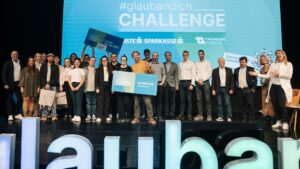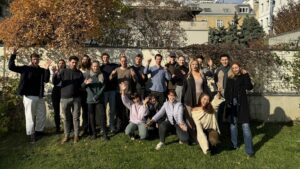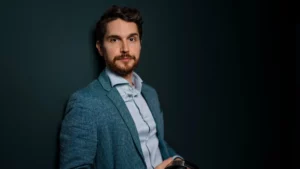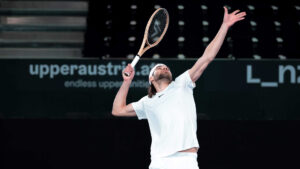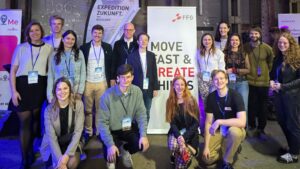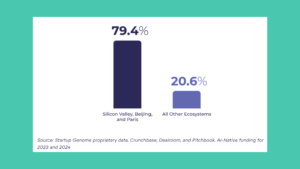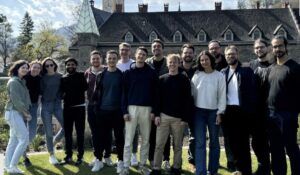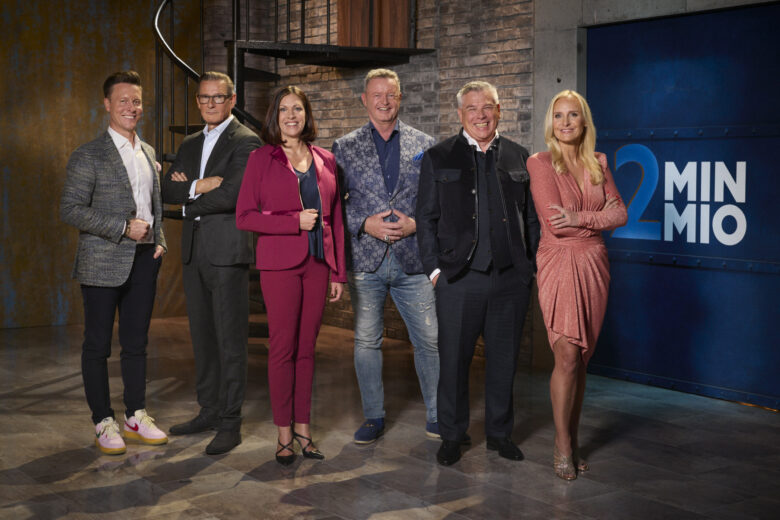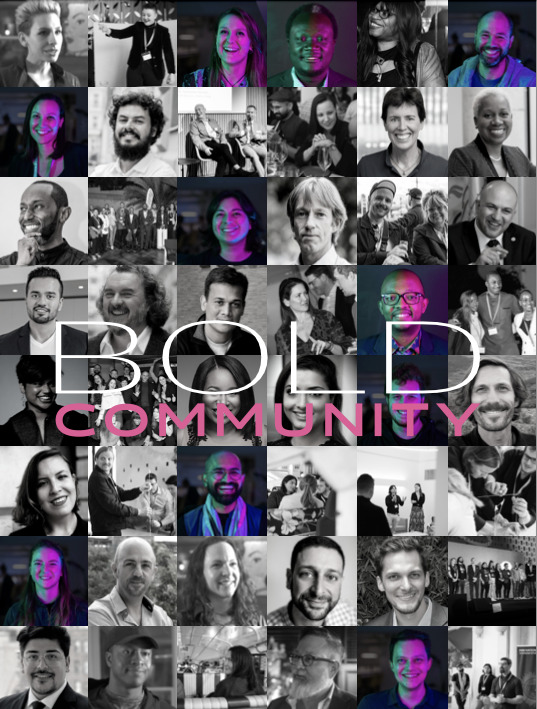CultTech Investor: „The Old Order Disappeared, But a New Order Didn’t Appear Yet“
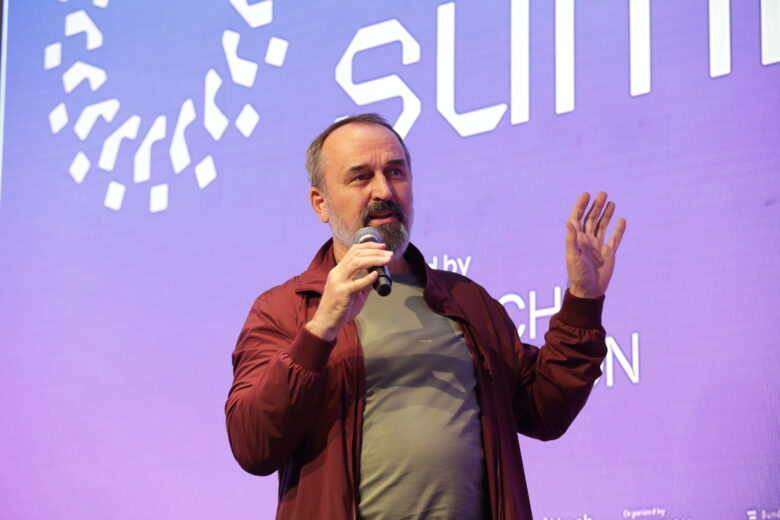
A movement is currently emerging in Vienna centred around Russian-born investor Dmitry Aksenov that marries culture with tech: CultTech is set to be Europe’s new strength, blending new Web3, AI and VR with art, culture, media and entertainment to create new business models. With the CultTech Summit, which is taking place this week in Vienna, there is now also a dedicated event with hundreds of visitors.
In this interview, Aksenov explains why this is happening right now, what the copyright issues are with AI and why the NFT crash is not detrimental to the Web3 idea.
Trending Topics: For a lot of people, I think CultTech is a rather new vertical. How do you define CultTech?
Dmitry Aksenov: That’s a new sector of the economy, which consists of the upcoming transformation of cultural sphere by tech, which we have seen in different other sectors like mobility, the financial sector or education. So it’s already a big deal of redefining itself for those areas of economic activities. High culture is still a very traditional way of doing things in terms of producing, distributing and monetizing. Definitely pop culture is much more ahead, but we envision that high culture also experiences transformation and as a result, increase of market share. More culture for more people.
But why now?
Several reasons. As always, supply-demand situation. Due to tech transformation of the society in general, we’re in a very chaotic situation now. So whatever area you look at, be it the political sector, education, business, the old world was dominated by several big players who hold their substantial market shares hat the access to the consumers. Now it’s over. Everybody with a new idea can come directly to the consumer and offer a new product, whatever it is, a political agenda or educational product or tech innovation. That’s why the world became very chaotic. The old order disappeared, but a new order didn’t appear yet.
As a result, consumers are lost. We’re in a chaos of information, chaos of choices, chaos of options, and it’s not clear where to go. As a result, there is a growing demand from general audiences for meaningful choice. How do we continue with our lives? What’s the future? Culture is always offering a perspective for the future. But at the same time, what we see that cultural infrastructure, high-end cultural infrastructure is experiencing the pressure from a decrease of funding for obvious political reasons.
It used to be on state support or corporate sponsoring. But there’s a decrease of funding for museums, festivals, theatres, whatever, because there is plenty of choice where to spend money elsewhere. Culture can not survive the way it used to.
So you see the need for innovation on the financing side and not so much on the product side?
On all sides: production, distribution, consumption. In decreasing the cost of production, inventing new ways of wider distribution, marketing, reaching out to the audience, engaging, educating, experiencing.
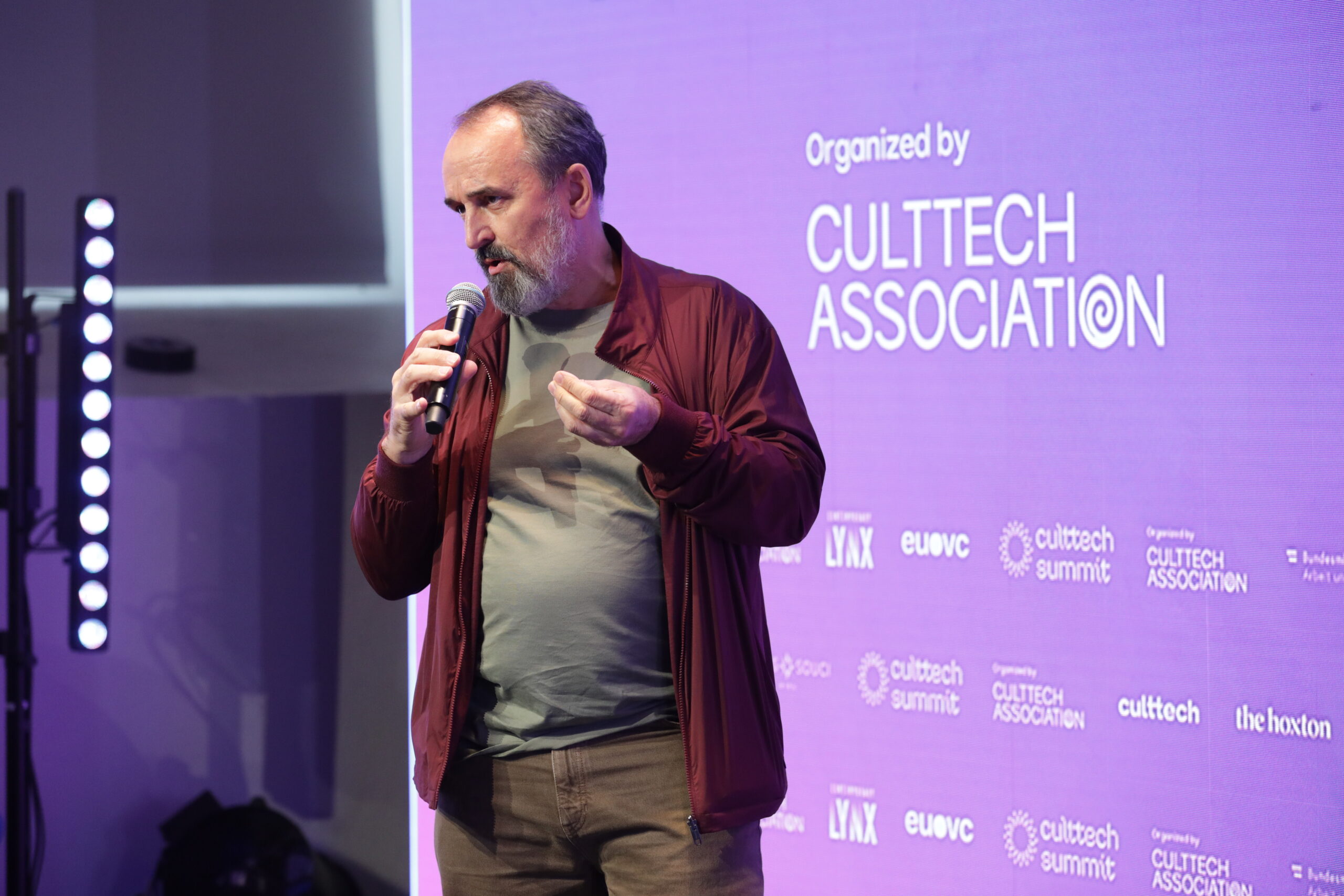
Could you give an example? What is your favorite CultTech company from Europe?
Spotify is a good example of how music is distributed in our digital era. Innovations are happening now mainly in in mass culture. But also high culture has to engage. But we don’t really see a dramatic difference between high culture and mass culture. It’s all about experience. Mass culture is more about basic emotions, like fear, greed, sex, money. High culture is more about complex ideas and inspirations, but there’s no really solid line between one another. Contemporary culture is a very important part of it, but there is no borderline between contemporary culture and traditional culture, because all traditional culture used to be contemporary just the other day.
You are one of the investors who seek to close this funding gap you just described. In what kind of companies and what kind of startups do you prefer to invest?
Those who demonstrate the scalability of distribution of content and those who adopt technological changes, be it AI, be it a Web3, anything. I’m an investor in New Renaissance Ventures, the first vertical fund dedicated to the subject. Out of eight of our latest investments, five are AI driven, so that reflects the reality of adaptation of tech by the cultural sphere.
How do you think about generative AI? A lot of artists claim they fear that their jobs could be lost.
For sure, the first step is that tech is just instrumental to creatives, so they would use it to decrease their labor intensivity, but concentrate on more productive and creative side, because creating a piece, be it visual art or be it literature, film, entails a huge amount of labor which is just could be outsourced to the technology, and also could concentrate on creative part. But later, for sure, at some point AI will reach the level of intellectual potential of a human.
Computers are playing chess already better, but so what? Does it stop people from playing chess? No, because they enjoy doing it. And that would stay with humans, because we do culture not because we benefit in material sense. We benefit emotionally, we benefit intellectually by doing this stuff. If AI is able to create something else, good.
If you look at the copyright question, which is a huge question in the creative industries, do you have an answer to that?
Definitely we need regulation and clear rules, and it’s a lot to be done, but you cannot stop AI. On the one hand you cannot stop the progress, but on the other hand you really have to protect the past efforts. If somebody has created value, it should be somehow protected, so the regulation is an issue.
If you look at different technologies that emerged like AI, AR, VR or Web3, what are the most interesting things for you in current tech? What is the most important tech trend?
All of it will have huge impact in the future. Virtual Reality will enable a much wider distribution than, let’s say, the Musikverein with 1,000 seats. Of course, it’s a completely different experience when you physically present there. It’s incomparable at the moment, but when we reach to a certain level of development of the technology, it would be somehow comparable.
The Web3 enables transparancy and fair value distribution. This would be very handy when it becomes finally efficient. The hype with the NFTs created dissatisfaction, but it’s not that the technology is bad.




